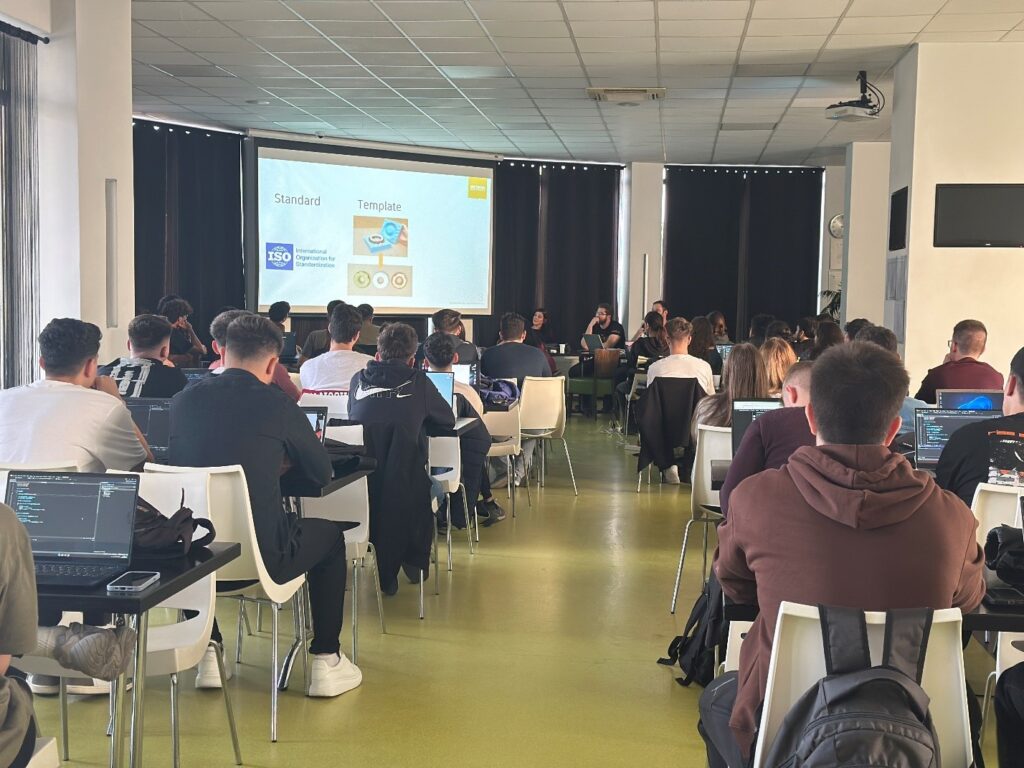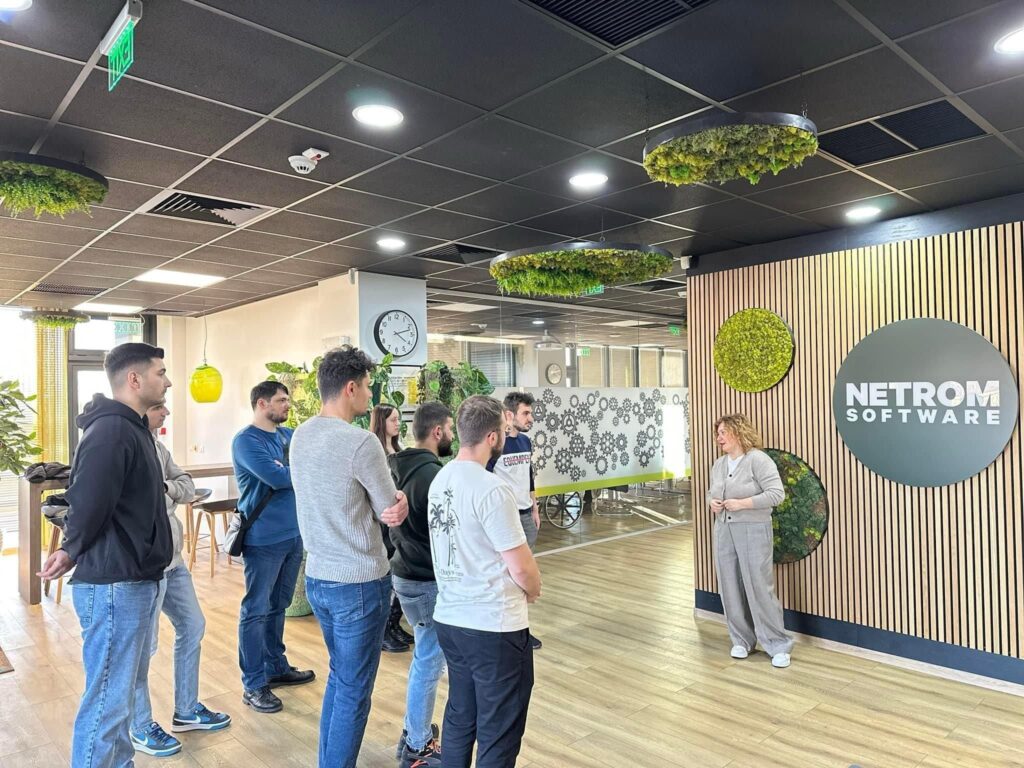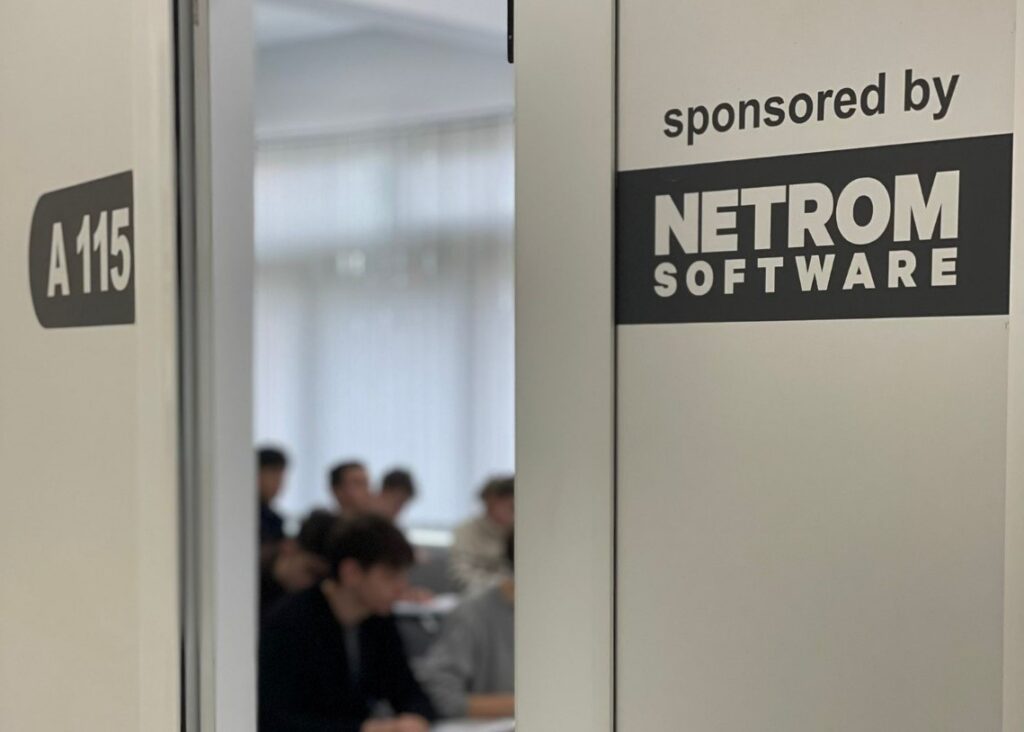
In an increasingly digital economy, the need for skilled IT professionals remains a priority for many organizations. Even as forecasts of a potential global recession introduce uncertainty into corporate strategies, the importance of investing in reliable technical expertise has only grown. For young professionals, this environment underscores the value of starting an IT career early. Doing so not only provides a competitive advantage but also offers access to roles that are stable, in-demand, and well-positioned for the future.
This article outlines how students can begin developing their careers in IT during high school and examines the important role employers can play in supporting that development.
Foundations: Starting early
The field of information technology is dynamic and continuously evolving, making traditional, linear career paths less applicable. In this context, early engagement can play a key role in long-term professional success. By taking initiative during the formative years, particularly in high school, students can develop a strong foundation that prepares them to meet the demands of a rapidly changing industry and take advantage of new opportunities as they emerge.
To maximise the value of this early phase, students can consider the following approaches:
- Exploring interests in IT: High school provides an ideal setting to discover various areas within IT and begin building a foundational understanding of key concepts. Students can engage through elective courses, technology clubs, competitions, or personal projects, all of which can help identify areas of interest and guide future learning paths.
- Building technical skills: Many schools now offer IT related courses or specialised programs. These provide an early opportunity to develop practical skills such as programming, problem-solving, and logical reasoning. Starting with basic coding or systems concepts at this stage can ease the transition into more advanced topics later.
- Developing soft skills: While technical proficiency is essential, soft skills such as communication, collaboration, critical thinking, and adaptability are increasingly important in IT roles. These skills can be cultivated through team-based projects, student organisations, or targeted training and workshops.
- Taking advantage of extracurricular opportunities: Participation in extracurricular activities exposes students to diverse working environments and helps build both technical and interpersonal skills. Involvement in open-source initiatives, certification programs, or company-led workshops can also enhance a student’s resume and prepare them for higher education or internships.
Starting early offers a clear advantage in a sector as complex and fast-moving as IT. It enables students to better understand their interests, define career goals, and begin developing the skills needed
Moving into higher education
Once foundational knowledge is in place, the transition to higher education or specialized training programs allows for deeper skill development and professional alignment. At this stage, students begin to focus on areas of specialization, pursue recognized certifications, and prepare for practical application in the workforce.
Key considerations during this phase include:
- Choosing a specialization: University programs offer a wide range of domains within IT. A well-informed decision, guided by prior exposure during secondary education, can help students align their studies with long-term career aspirations.
- Building professional connections: Developing relationships with companies, industry professionals, and peer communities can ease the transition into the job market. Participation in internships, mentorship programs, and industry events can offer valuable insight and networking opportunities.
- Staying current with industry trends: As students move closer to entering the workforce, staying informed about evolving technologies and tools becomes increasingly important. Continuous learning and engagement with relevant developments help maintain professional relevance.
This educational phase, often the most intensive in terms of skill acquisition, is critical for transforming early interest into professional readiness. By balancing academic learning with practical experience and industry exposure, students position themselves as competitive candidates in a fast-changing IT landscape.

The company’s role in supporting IT talent development
A successful career in IT is rarely built through formal education alone. While academic institutions provide foundational knowledge and skill-building opportunities, companies play a critical role in bridging the gap between education and practical application.
By offering real-world environments where technical skills can be applied and refined, employers significantly contribute to a learner’s professional growth. Early engagement from industry partners can accelerate the development of future IT professionals and ease the transition into the workforce.
There are multiple ways companies can support and nurture emerging talent. At NetRom, several initiatives have been introduced to identify and guide future specialists, with dedicated programs targeting both high school and university students.
1. Promoting talent through Code Golf
Code Golf is a programming competition designed to test participants’ analytical and problem-solving skills. Students are challenged with “treasure hunt” style problems, where they must interpret input and output files to understand the problem scope and deduce requirements. The aim is to produce the most concise and efficient solution possible.
This contest is specifically geared towards high school students and first- and second-year university students. The top five performers are invited to join a structured internship program, offering a valuable opportunity to gain industry experience early in their careers.
2. Sharing expertise through STL courses
For over a decade, NetRom has contributed to IT education by delivering STL (Standard Template Library) courses in collaboration with the Faculty of Automation, Computers, and Electronics. These courses are designed to improve programming and algorithmic thinking skills.
Open to first- and second-year university students, and more recently, to high school students, the program welcomes participants regardless of their technical background. The goal is to broaden access to advanced programming knowledge and encourage a deeper understanding of C++ concepts among young learners.

3. Advancing skills through a dedicated C++ internship
For students who demonstrate exceptional performance, either by placing in the top five of the Code Golf competition or successfully completing the final assessment of the STL course, NetRom offers a four-week internship. This program provides both high school and university students with the opportunity to apply their knowledge in a practical setting and deepen their understanding of software development in a professional environment.
4. Exploring industry trends with NetRom Software Academy and Software Testing Academy
The NetRom Software Academy (NSA) is an educational program that combines theoretical sessions with practical activities. Participants engage in a range of topics covering both technical and non-technical areas, such as current industry trends, professional skills, and modern development practices. The goal is to create a well-rounded experience that fosters both understanding and experimentation.
Complementing this initiative, the NetRom Software Testing Academy (NSTA) focuses specifically on Quality Assurance (QA) within software projects. The program is led by experienced QA professionals who guide participants through the key principles and practices of testing. Sessions are interactive and collaborative, offering a practical framework for understanding the complete software development lifecycle from a quality perspective.
5. Gaining practical knowledge through Liga AC Labs
Developed in collaboration with the student organization Liga AC from the Faculty of Automation and Computer Science in Timișoara, Liga AC Labs targets students with a strong interest in programming. The program emphasizes hands-on learning by allowing participants to apply theoretical concepts in a real business setting. With a focus on full-stack web development, artificial intelligence, and machine learning, the labs help students strengthen their skills in designing and developing advanced software applications.
6. Connecting education with industry at Open4Tech Summer School
Open4Tech Summer School is an initiative organized by the Department of Computer Science at the Faculty of Sciences in Craiova, in collaboration with regional IT companies, including NetRom. Over the course of three weeks, participants attend optional, practical 2-hour sessions led by industry professionals. Topics include both career development themes, such as how to enter the IT job market, and hands-on programming workshops in various technologies. The program is open to university and high school students interested in IT.

7. Applying skills in practice at Summer Camps
NetRom’s Summer Camp program provides students with the opportunity to work alongside experienced mentors to apply the knowledge acquired during their studies in a practical, real-world context. Participants are guided through the complete application development lifecycle, gaining insight into both the technical and organizational aspects of IT projects. The program is designed to offer a clear understanding of professional workflows and team dynamics within the IT sector.
8. Experiencing full integration in Application Development Internships
The Application Development Internship is a one-month, full-time program that offers students an immersive experience of working in a professional IT environment. Interns are fully integrated into development teams and actively contribute to projects, participating in every stage of the software development process – from idea selection to final deployment. This internship provides valuable insight into the daily responsibilities, collaboration, and standards of a modern software company.
9. Supporting student success through scholarships and mobility programs
Financial barriers can limit students’ ability to pursue international learning experiences or fully focus on their development. By offering scholarships and financial support for mobility programs, companies play a crucial role in enabling students to expand their academic and professional horizons.
Each year, NetRom provides scholarships to multiple students, facilitating study opportunities in countries such as Spain, Germany, and the Netherlands. These experiences contribute significantly to students’ personal growth and technical expertise, strengthening the future talent pool in IT.
10. Strengthening education through investment in learning infrastructure
For students to thrive, access to well-equipped, modern educational environments is essential. However, continuously upgrading infrastructure poses challenges for many universities. Private sector contributions, such as funding and sponsorships, can help address these limitations.
In collaboration with academic institutions, NetRom actively supports infrastructure development by equipping laboratories and renovating educational spaces. These investments directly improve the learning conditions for students and support long-term educational quality.

Companies play a vital role in developing future IT talent by bridging the gap between academic education and practical application. Through initiatives such as competitions, internships, summer camps, and financial support programs, businesses offer students valuable opportunities to apply their knowledge in real-world environments.
Programs like those implemented by NetRom enable students to enhance their technical competencies, gain exposure to industry workflows, and develop a comprehensive understanding of professional expectations. Early engagement with students supports a smoother transition into the workforce and helps build a skilled and capable IT talent pool.
Conclusion
In today’s rapidly evolving IT landscape, building a successful career requires both early engagement and continuous development. Starting in high school, exploring interests, and developing a strong foundation of technical and interpersonal skills are essential steps toward long-term success.
However, education alone is not sufficient. Active involvement from companies plays a critical role in preparing the next generation of IT professionals. Employers bridge the gap between theoretical knowledge and practical application by providing valuable opportunities such as internships, competitions, and mentorship programs.
The transition from student to professional also marks a significant phase where former mentees become colleagues, bringing prior experience and familiarity with the company’s culture and workflows. This prior engagement often distinguishes new hires and accelerates their integration and contribution.
At NetRom, we remain committed to supporting young talent; guiding them through structured learning initiatives and welcoming them into our teams. Once onboard, continuous growth is fostered through ongoing training, workshops, and participation in innovative projects, ensuring both personal and professional development.
